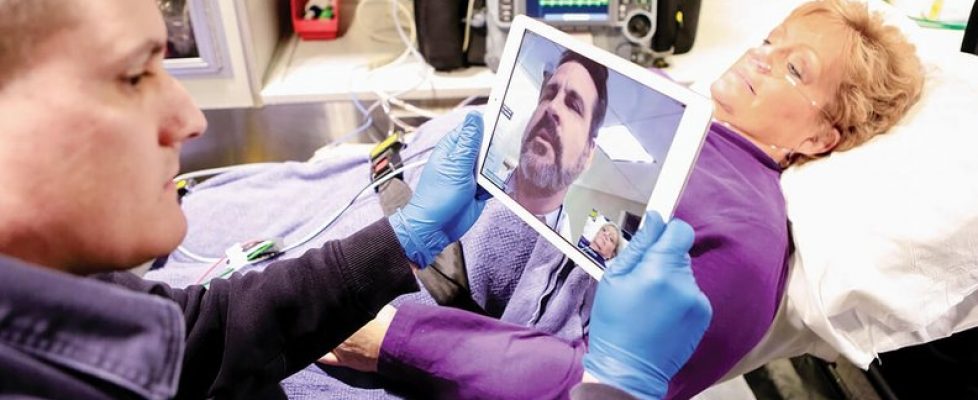CMS expands Medicare Advantage telehealth benefits
The CMS finalized a rule on Friday that would give Medicare Advantage plans more flexibility to offer additional telehealth services to seniors as part of their basic benefits package starting in 2020.
The rule, proposed in October 2018, allows seniors to use telehealth services in their homes, rather than being required to go to a healthcare facility.
While previously Medicare Advantage plans could include additional telehealth services only as a supplemental benefit to be paid for with rebate dollars or enrollee premiums, they will now be able to include telehealth as a basic government-funded benefit beyond what the original Medicare program offers. The change was called for by the Bipartisan Budget Act of 2018.
“Today’s policies represent a historic step in bringing innovative technology to Medicare beneficiaries,” CMS Administrator Seema Verma said in the announcement. “With these new telehealth benefits, Medicare Advantage enrollees will be able to access the latest technology and have greater access to telehealth.”
The CMS also said it is streamlining grievance and appeals process for patients enrolled in certain dual-eligible special needs plans and affiliated Medicaid managed care plans, as required by the Bipartisan Budget Act.
And to better integrate benefits for dual-eligible patients, the CMS is finalizing a new minimum criteria for Medicare and Medicaid integration in the so-called D-SNPs starting in 2021. It will require D-SNPs to either cover Medicaid long-term services and supports or behavioral health services through a capitated payment from a state Medicaid agency, or D-SNPs will have to notify a state Medicaid agency of its hospital and skilled nursing facility admissions for a group of high-risk, full-benefit dual-eligibles.
The CMS did not address in the final rule a dramatic change to the way it audits Medicare Advantage plans, given it extended the comment period to April 30. But it notes it will address the audits in later rulemaking.
In the October proposal, the agency also told insurers it wants to start recouping payments to Medicare Advantage plans based on a risk-adjustment data validation audit methodology proposed back in 2012. Under that methodology, the CMS would extrapolate the results of an audit of a sample of enrollees across the entire plan population, which could dramatically increase the recoupments of improper payments to plans.

